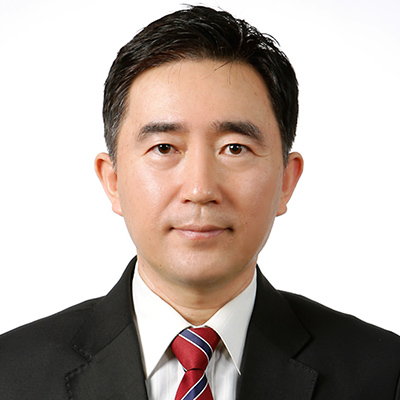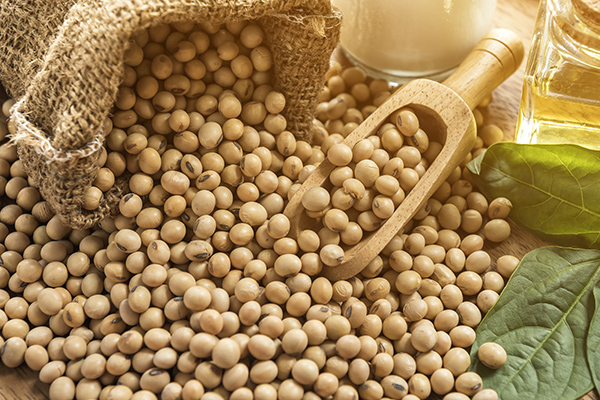The study, co-led by USF Health, finds soy isoflavones reduced the risk of severe asthma flare-ups in individuals with higher levels of the protein PAI-1

Researchers are looking for asthma treatment options based on specific disease markers to help patients not effectively managed by existing medications.
A 2015 multicenter randomized clinical trial concluded that soy isoflavone dietary supplements do not improve lung function or other clinical outcomes in patients with asthma, despite earlier population studies suggesting a link between soy intake and reduced asthma severity.
But that long-awaited Study of Soy Isoflavones in Asthma (SOYA) trial, published in the Journal of the American Medical Association, did not account for patient-specific genetic variations that may influence treatment response.
So, Seong Cho, MD, of the USF Health Morsani College of Medicine, and colleagues recently investigated whether differences in the type-1 plasminogen activator inhibitor (PAI-1), which encodes an antifibrotic protein, affected asthma outcomes of patients treated with soy isoflavone supplements, which included genistein. The researchers found that the soy isoflavones did indeed significantly reduce asthma exacerbation in a subgroup of the SOYA trial patients who had genetic variations in the PAI-1 promoter region that boosted their blood levels of PAI-1.
USF Health, Northwestern University’s Feinberg School of Medicine, Kyung Hee University, and Johns Hopkins University’s Bloomberg School of Public Health collaborated on the new study. The findings were published earlier this year in the Journal of Allergy and Clinical Immunology (JACI), a journal of the American Academy of Allergy, Asthma & Clinical Immunology.
“Our study suggests that high PAI-1 producing genetic mutation can be a biomarker for severe asthma as well as asthma likely to respond to soy isoflavone treatment,” said Dr. Cho, an associate professor in the Division of Allergy and Immunology, USF Health Morsani College of Medicine, and lead author of the research paper. “While soy isoflavones may not benefit all patients with asthma, the supplements may provide significant benefit for individuals with a high PA-1 level, including those who are cigarette smokers, or obese.”

Lead author Seong Cho, MD, is an associate professor in the USF Health Division of Allergy and Immunology.
The researchers used remaining DNA extracted from blood samples of patients who participated in the original SOYA trial. They analyzed variations of the gene responsible for production of the protein PAI-1 based on a sample size of 265 patients with poorly controlled asthma – 120 treated with soy isoflavones and 145 placebo-treated (the control group). Previous studies have shown that genetic variations (genotypes) influence levels of PAI-1, a biological target of soy isoflavones. The 4G/4G genotype produces higher levels of PAI-1 than the 5G/5G genotype, while the 4G/5G group has moderate levels of the protein.
Among the findings of this retrospective study:
- Soy isoflavone treatment reduced the use of oral corticosteroids (a marker for worsening of severe asthma) in patients with the 4G/4G and 4G/5G genotypes by four-fold compared to the placebo, but there was no decrease of medication use in the 5G/5G genotype group.
- No significant genotype-specific differences were determined between the soy-treated patients and the untreated control group for other factors associated with worsening asthma symptoms, including lung function.
- In normal human epithelial cells, genistein treatment decreased PAI-1 production induced by TGF-ß1, a growth factor contributing to airway structural changes in uncontrolled asthma. This suggests that soy isoflavones can reduce PAI-1 in the airways of patients with severe asthma, the researchers said.
The study authors emphasized that a prospective and larger trial is needed to more definitively determine if and how PAI-I genetic variation influences the effectiveness of soy dietary treatment in alleviating asthma.
Based in part on results of the JACI paper, Dr. Cho said, the National Institutes of Health-sponsored Precision Interventions for Severe and/or Exacerbation Prone Asthma Network (PrecISE) is considering a large randomized clinical trial testing soy isoflavones, targeting high PAI-1 producing asthmatics. If the NIH trial is conducted, the USF Health Asthma, Allergy and Clinical Immunology Clinical Research Unit would be a study site, he added.
Asthma, a chronic inflammatory lung disease resulting in airway constriction that makes breathing difficult, affects more than 26 million Americans, according to the American Lung Association. When poorly controlled, asthma can be life-threatening and lead to hospitalizations. Researchers continue to look for treatment options based on patient-specific disease markers to help those with asthma not effectively managed by existing medications.

